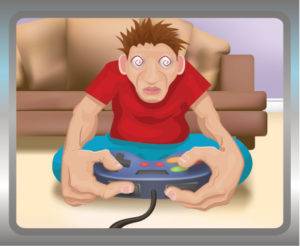 Many parents are concerned with the amount of time that their pre-teens and teens spend playing video games, whether it be on consoles such as X-box, on PCs or on their smartphones. The phenomenal popularity of the game Fortnite in particular has had many parents looking for advice on how to effectively limit the amount of time spent on gaming.
Many parents are concerned with the amount of time that their pre-teens and teens spend playing video games, whether it be on consoles such as X-box, on PCs or on their smartphones. The phenomenal popularity of the game Fortnite in particular has had many parents looking for advice on how to effectively limit the amount of time spent on gaming.
This year at Bishops the BSU organised two workshops on gaming for parents and teens. Here are some additional resources:
Produced for for the YMCA in Australia, this guide provides an excellent overview of gaming for parents, from the benefits of gaming to the risks and concerns. Benefits include cognitive, emotional and social development as well as skills training. The major risks are around gaming addiction (or Gaming Disorder) and to a lesser extent, gambling and cyber-safety. There is also excellent advice for parents on issues such as understanding game classification and genres, setting appropriate limits, healthy socialisation, and teaching your child about game development. If your child’s gaming gets out of hand then it is helpful to go through a “Gaming Disorder Questionnaire” and then to consult a mental health professional.
Video game addiction test for parents
This is a questionnaire produced by Canadian clinical psychologist Brent Conrad. Based on your answers to 30 questions you can assess the likelihood of video game addiction from Low to Very High with recommendations for each category. Any questionnaire such as this should be used with caution, bearing in mind that the behaviour needs to be present for approximately 12 months.
Cam Adair’s talks
Cameron Dare (aka Cam Adair) is a former game-addict turned motivational speaker and the founder of GameQuitters.com. His 2013 TEDx talk on Escaping Video Game Addiction effectively launched his career as a speaker on the subject. See below his 60-second summary on how to quit playing video games:
According to Dare, there are four main reasons that people play video games:
1. They provide a temporary escape.
2. They are social.
3. They are a challenge (they provide a purpose).
4. They provide constant measurable growth (progress).
One of the tricks to beating the hold that games can have on you is to meet these needs in other areas of your life. Another tip is to schedule your routine for every day. As with any addiction, relapse is part of the process. But it’s good to know that there is an online support community, and many useful resources available.
I’ll post more on this topic in due course. Parents and teens can also send any feedback or concerns that they have to me at pfarlam@bishops.org.za






